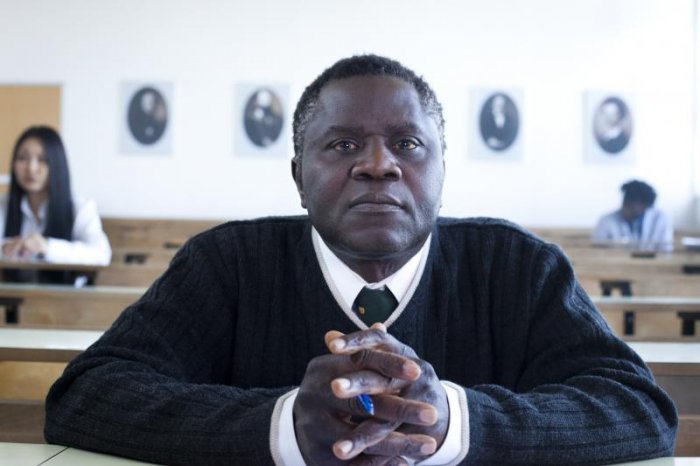Refugee crisis seen raising discrimination, says African-born Hungarian

Marcelo Cake-Baly, an African-born Hungarian, feels that the refugee crisis has made life different for him as he is often seen as a “migrant” due to the color of his skin, despite being a Hungarian citizen, according to a report by Reuters Wednesday.
Cake-Baly in a still from the movie The Citizen (Az állampolgár).
Cake-Baly, 58, arrived in Hungary in 1976 from Guinea-Bissau, and has worked as a tram driver in the Hungarian capital for more than a decade. He is currently starring in a Hungarian movie entitled "The Citizen," which aims to show the difficulties of non-Hungarians trying to integrate into local society.
Although Cake-Baly has been a Hungarian citizen since the mid-90s, the refugee crisis has lately left its stamp on him.
"In my thoughts ... I feel I am Hungarian, but in the street I look African. It is not written on me... that I have a Hungarian family, I work here, I am a tax-paying citizen," he told Reuters. "People just see me as a migrant."
Cake-Baly said that when he attended university here in the 1980s he faced no discrimination at all. Just before the change of regime in Hungary, he lost his job as an economist, then studied in Belgium for three years before returning to Hungary and starting to work as a tram driver.
He told the wire service he believes the refugee crisis has divided European societies and it is much more difficult now for immigrants to carry on with their lives. Giving a personal example, he said he recently asked a youngster to put out his cigarette at a tram stop, as it is forbidden by law to smoke at public transport stops. "He told me he was at home, and I was a migrant ... and I should have drowned in the sea," Cake-Baly recalled.
Cake-Baly’s experiences apparently confirm xenophobic tendencies in Hungary. According to recent surveys, since it has been assessed, xenophobia has never been as high in Hungary as it is today. This comes after a massive campaign by the Hungarian government against “migrants” prior to the October referendum on the EU’s planned refugee quotas, which ended as invalid due to insufficient turnout.
The Hungarian government has been criticized by opposition parties and NGOs for making it hard for non-Hungarians to assimilate into local society. However, the government has defended its stance by saying that they are applying international laws and are trying to defend the interests of Hungarians as well as “Christian Europe,” as Prime Minister Viktor Orbán has often argued.
SUPPORT THE BUDAPEST BUSINESS JOURNAL
Producing journalism that is worthy of the name is a costly business. For 27 years, the publishers, editors and reporters of the Budapest Business Journal have striven to bring you business news that works, information that you can trust, that is factual, accurate and presented without fear or favor.
Newspaper organizations across the globe have struggled to find a business model that allows them to continue to excel, without compromising their ability to perform. Most recently, some have experimented with the idea of involving their most important stakeholders, their readers.
We would like to offer that same opportunity to our readers. We would like to invite you to help us deliver the quality business journalism you require. Hit our Support the BBJ button and you can choose the how much and how often you send us your contributions.









